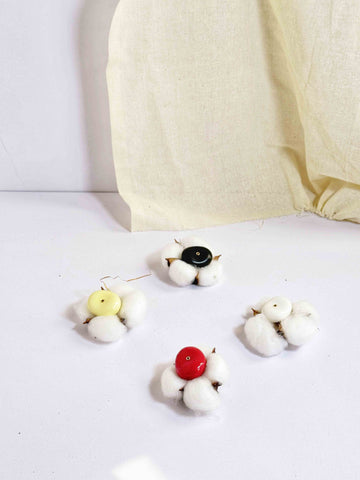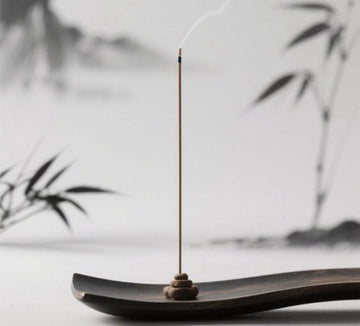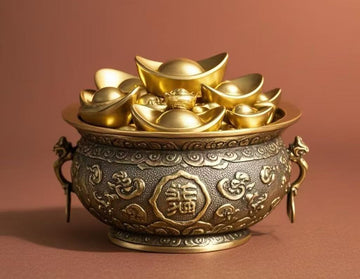In today’s fast-paced world, gift-giving has become a transactional affair, often reduced to market value and brand prestige. However, one ancient tradition continues to embody depth, culture, and reverence: gifting incense—particularly premium agarwood incense, also known as aloeswood or "沉香" (Chen Xiang). For those wondering, can I give incense sticks as gifts?—the answer is a resounding yes. In fact, it is a gesture steeped in cultural wisdom, spiritual symbolism, and historical significance.
The Forgotten Tradition of "雅赠" (Elegant Gifts)
In ancient Chinese culture, certain gifts were not merely items of exchange, but symbols of intellectual and moral esteem. These were known as "雅赠"—elegant or refined gifts—exchanged among scholars, poets, and nobility. While items like paintings and porcelain remain in public memory as quintessential 雅赠, the most revered and culturally rich among them, agarwood incense, has tragically faded from modern consciousness.
Historically, agarwood incense was not a casual gift. It was originally reserved as a national treasure, exclusively offered by subordinate nations to imperial rulers or bestowed by emperors upon foreign dignitaries. Chinese dynastic archives document numerous occasions when emperors granted agarwood as an emblem of alliance and high honor—such as when the Ming Dynasty emperors sent agarwood to Korean kings.
As agarwood became more accessible over the centuries, its use spread beyond royal courts to the elite literati class. Among them, gifting incense was not merely an aesthetic gesture—it represented shared spiritual values, intellectual camaraderie, and mutual respect.
The Symbolism Behind Gifting Agarwood Incense
Agarwood is more than just a fragrant resin; it is a cultural relic that embodies spiritual and moral ideals.
-
Buddhist Significance: Within Buddhist traditions, agarwood is one of the highest forms of offering. When gifted among Buddhist practitioners, it communicates a shared faith and a mutual desire for enlightenment. It is also a profound way to honor the recipient’s moral character and spiritual refinement.
-
Moral Purity: Incense in classical literature often symbolizes personal virtue. To gift agarwood is to recognize the recipient’s high moral standing. Rejecting such a gift in ancient times was a powerful statement—suggesting guilt, unworthiness, or disdain for the giver’s values.
-
Well-being and Protection: In traditional folklore, incense was thought to dispel negative energy, ward off malicious spirits, and protect one's health. As such, gifting agarwood can also convey wishes for peace, safety, and longevity.
Why Modern People Overlook the Meaning of Incense
In the contemporary world, where commercialized goods dominate the gifting market, the profound meaning behind incense is often lost. Modern consumers tend to associate value with price tags and luxury branding, neglecting the deeper cultural and emotional resonance of their gifts.
This shift has led many to overlook incense as a gift idea—despite its suitability for a wide range of occasions and its unmatched symbolism. Gifting agarwood incense is not only culturally appropriate but also deeply meaningful, especially when compared to the overused “gold and silver” or other materialistic offerings.
The Elegance of Simplicity: How to Gift Agarwood Incense Today
One of the advantages of incense as a gift is its versatility and minimalism. It doesn’t require extravagant wrapping or ostentatious packaging. A single box of fine agarwood sticks or a small vial of pure agarwood powder is enough to convey profound respect and warm blessings.
Modern etiquette allows for flexible gifting scenarios:
-
A younger person gifting incense to elders demonstrates deep admiration and respect.
-
Elders gifting incense to juniors reflects encouragement and favor.
-
Between peers, it suggests shared values, elegance, and harmony.
Whether it’s New Year, weddings, housewarmings, or corporate gifts, incense—particularly agarwood—is a refined and thoughtful option that transcends social expectations.
Selecting the Right Incense: Quality Over Quantity
Not all incense is created equal. When selecting incense as a gift, especially agarwood, quality is paramount.
Avoid mass-produced sticks with overpowering synthetic fragrances. High-quality agarwood incense should have a mild, clean, and complex aroma—ranging from soft floral to minty sweet notes, with subtle woodiness and a lingering after-scent.
For example, Qi Nan (奇楠)—considered the king of all agarwood varieties—emits an elegant fragrance when unlit and releases a rich bouquet when burned, including mint, floral, and fruity undertones. These characteristics make it ideal for meditation, health benefits, and sensory pleasure.
Historical texts, including the medical writings of Hua Tuo, mention using agarwood incense for health purposes, such as combating epidemics. This points to its therapeutic value, in addition to spiritual and aesthetic ones.
Recommended Gift: Memoricall's Premium Agarwood Incense
When considering incense for gifting, choose a trusted brand known for purity and craftsmanship. Explore Memoricall’s Premium Incense Collection—crafted entirely from wild, natural agarwood. These incense sticks are chemical-free, hand-made, and embody the traditional elegance of 雅赠.
Whether you’re gifting to a mentor, family member, colleague, or spiritual guide, Memoricall’s incense carries both cultural heritage and heartfelt meaning.
Final Thoughts: Reclaiming the Lost Art of Elegant Gifting
To the discerning gifter, incense is not just a present—it is a philosophical offering, a spiritual bridge, and a gesture of timeless sophistication. In a society increasingly obsessed with the material, returning to traditions like incense gifting reminds us of what truly matters: respect, purity, and connection.
So the next time you ask yourself, “Can I give incense sticks as gifts?”—remember this: a stick of fine agarwood can speak more profoundly than words ever could.
It’s time to bring 雅赠 back to life.









